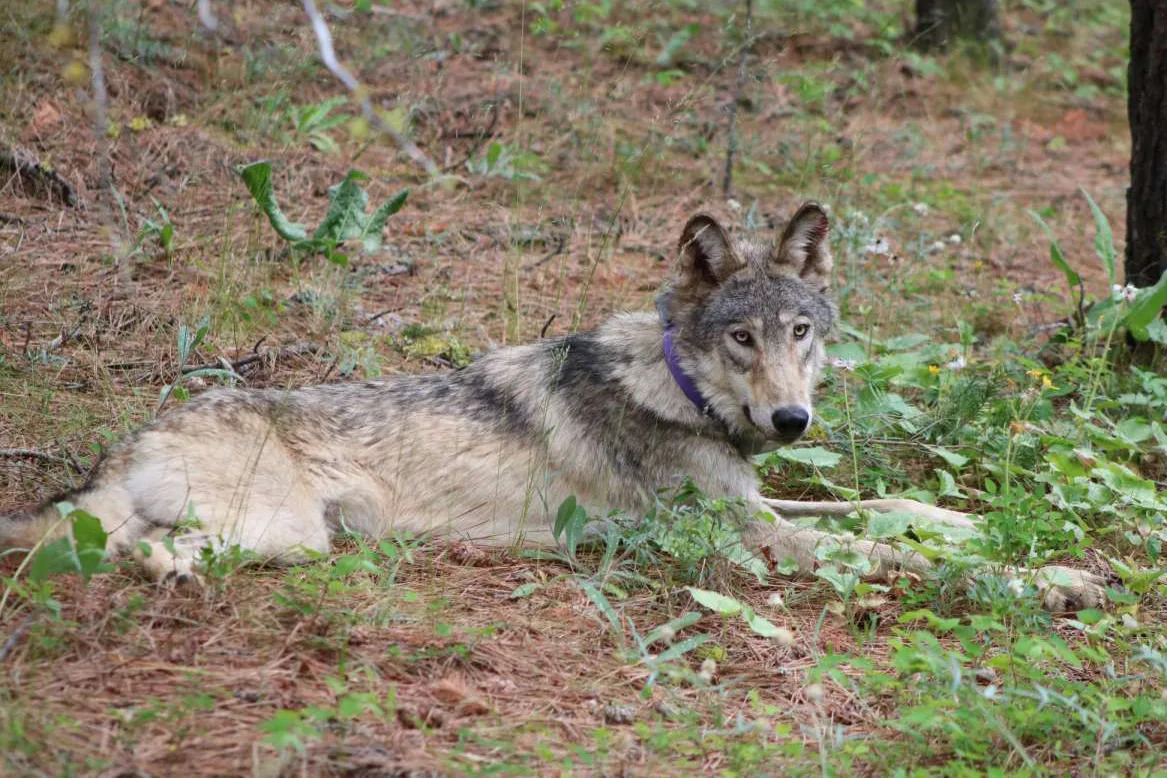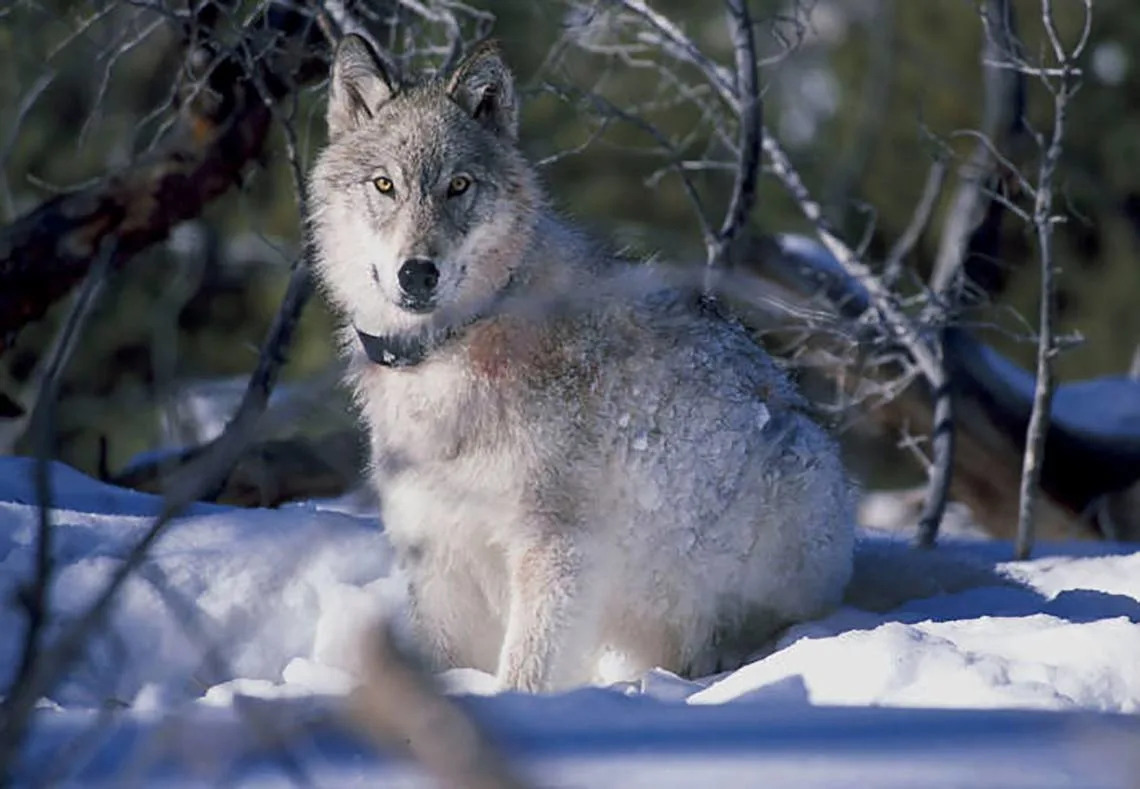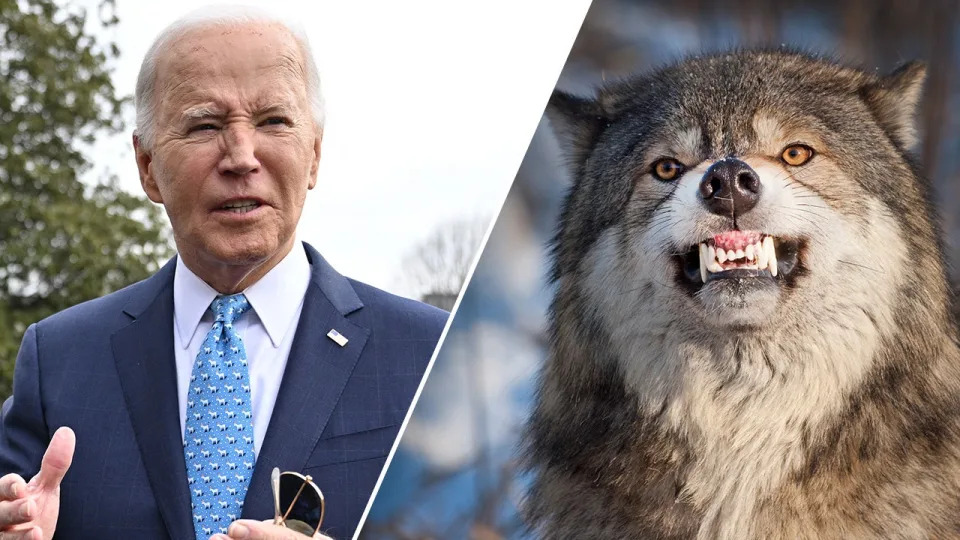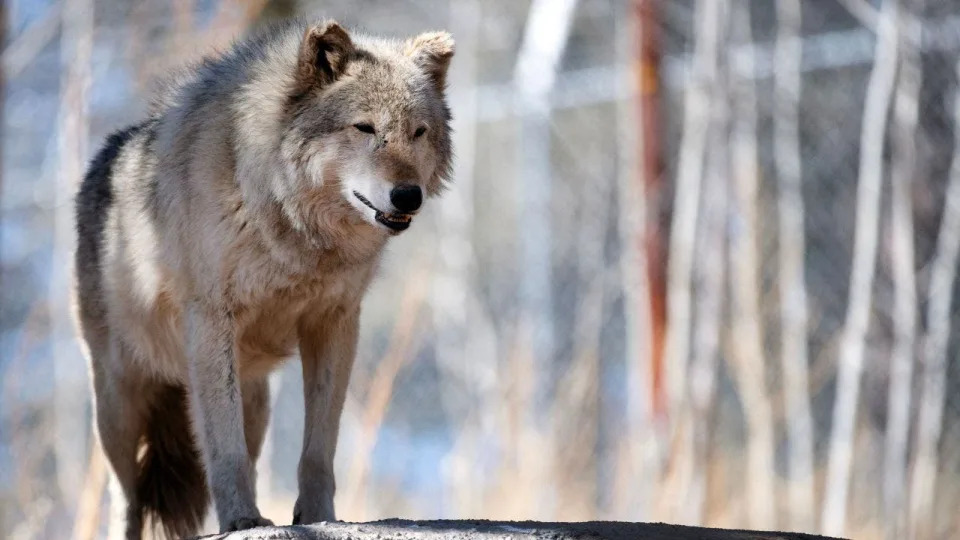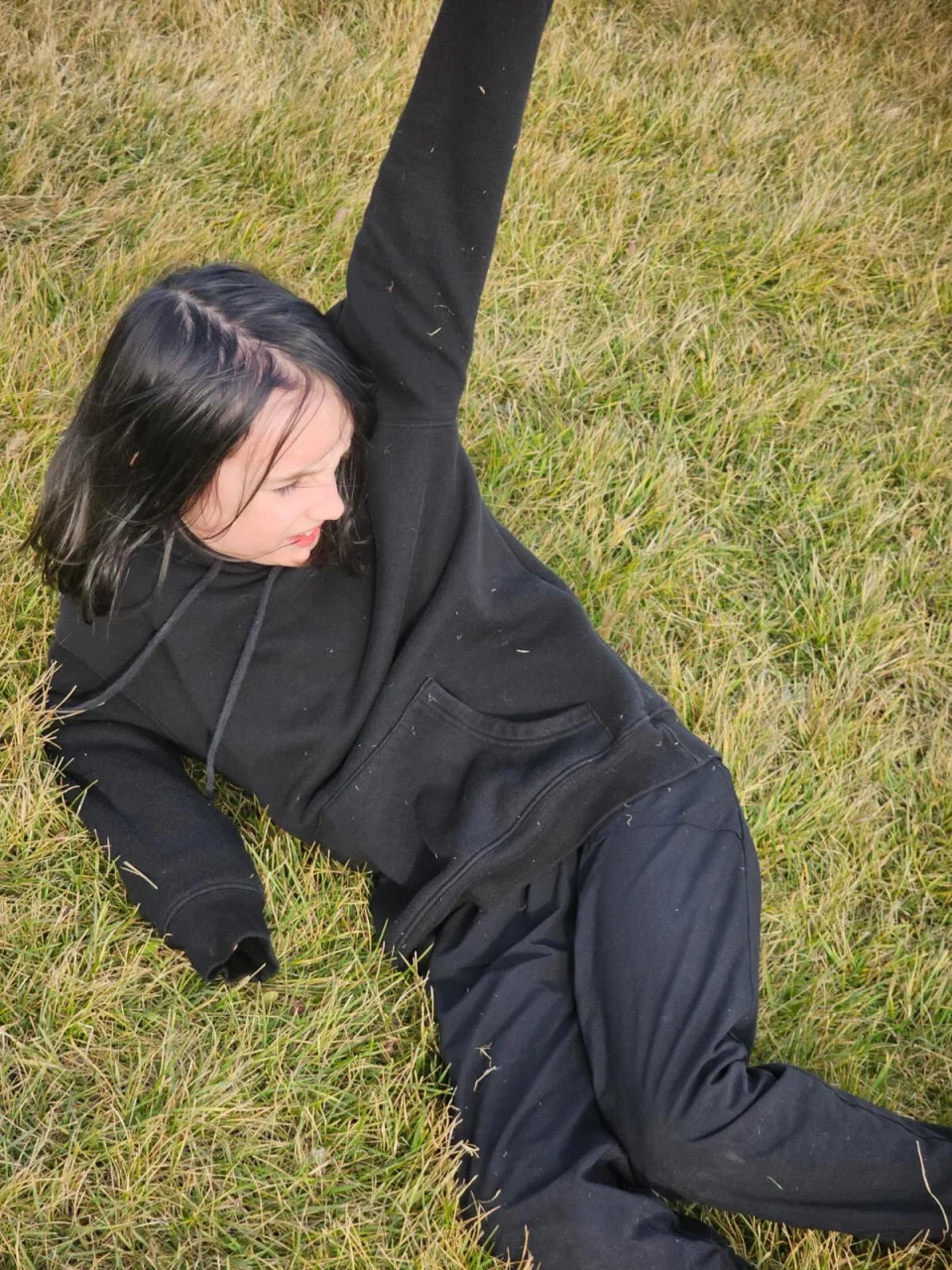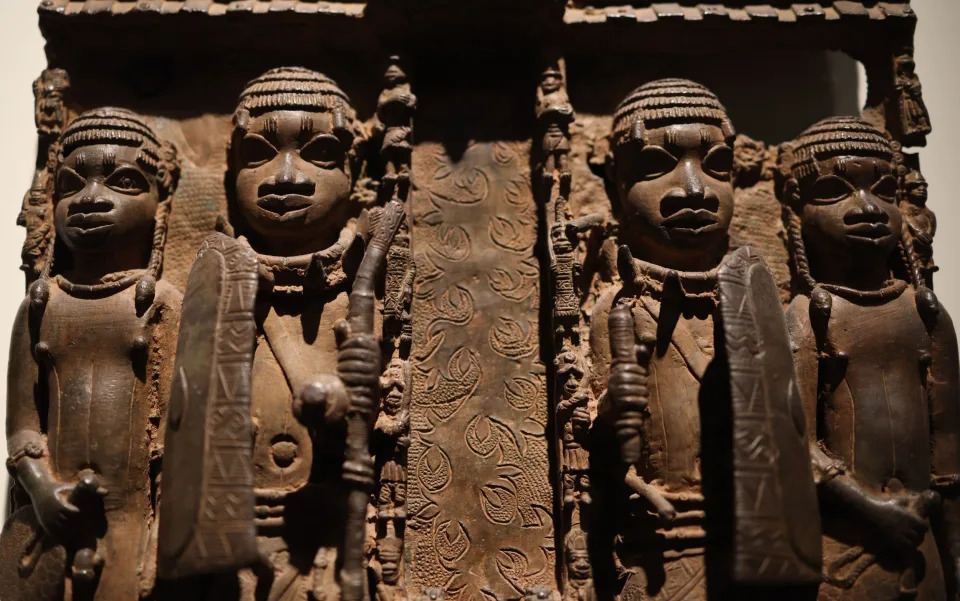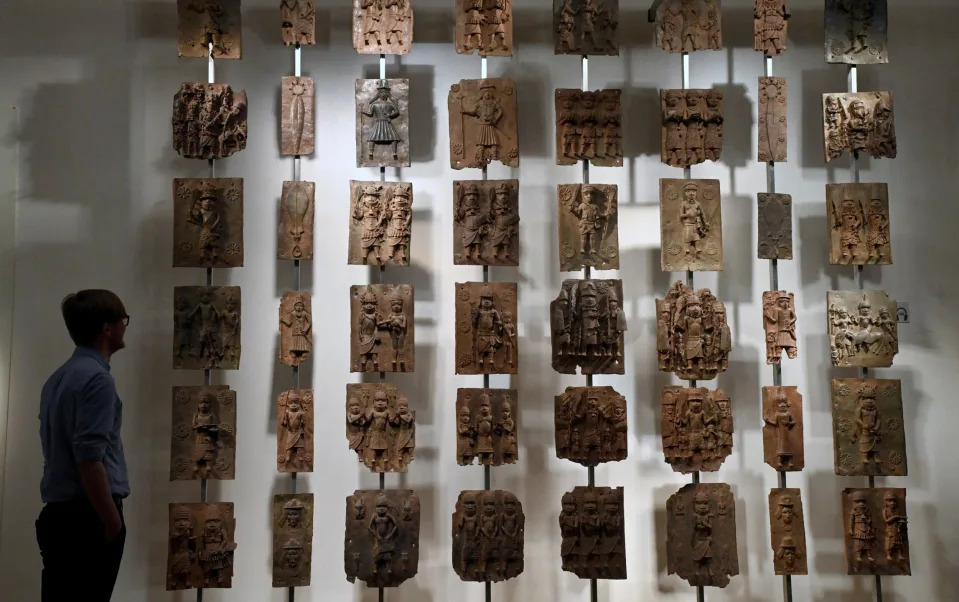Associated Press
Wed, January 31, 2024
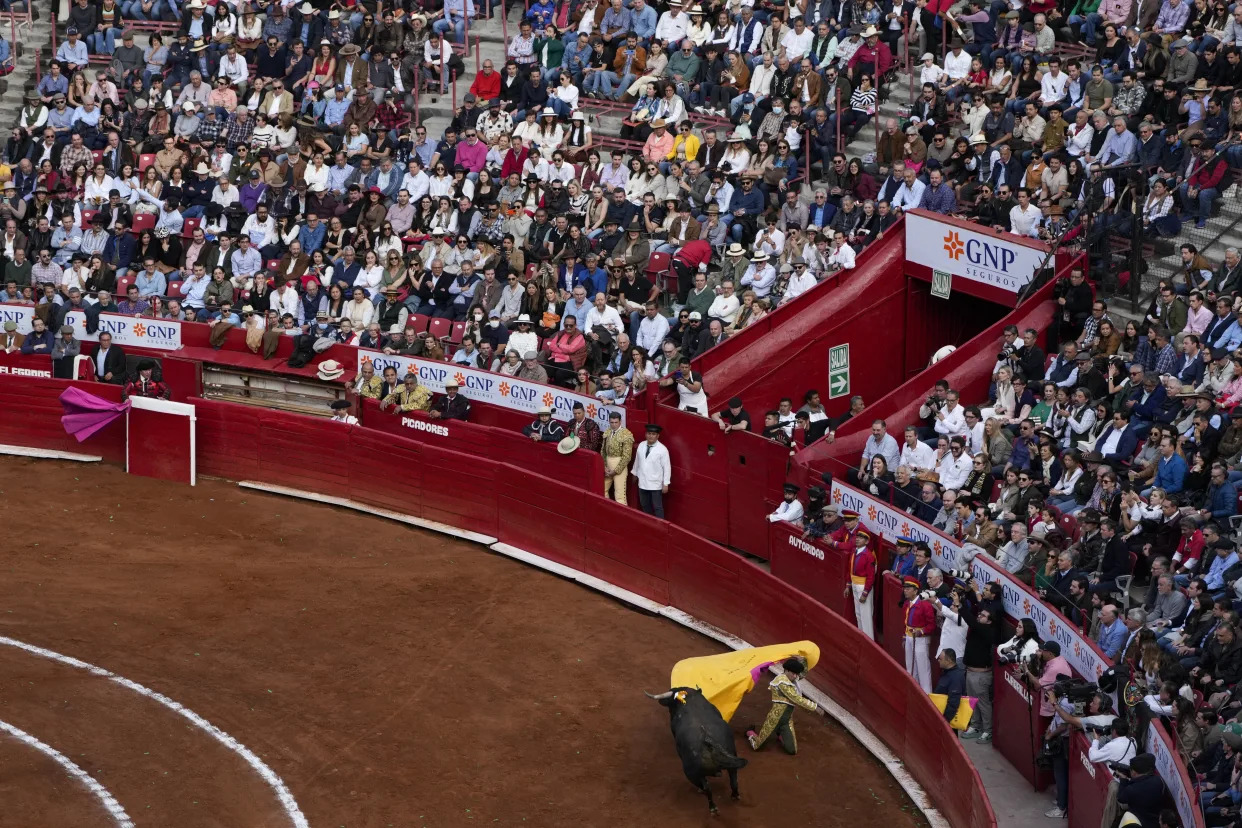
A bullfighter performs during a bullfight at the Plaza Mexico, in Mexico City, Sunday, Jan. 28, 2024. Bullfighting returned to Mexico City after the Supreme Court of Justice overturned a 2022 ban that prevented these events from taking place in the capital. (AP Photo/Fernando Llano)
MEXICO CITY (AP) — A federal court granted a temporary injunction against bullfighting in Mexico City on Wednesday, as activists and supporters of the practice once again locked horns in court.
Bullfighting had only just returned Sunday to the capital's Plaza Mexico, which held the city's first legal bullfight in almost two years.
The ruling will apparently force the postponement of fights scheduled for Feb. 4-6; organizers have not yet announced what they will do.
In May 2022, a local court ordered an end to bullfighting, ruling that the practice violated city resident’s rights to a healthy environment free from violence.
That case had been appealed to the Supreme Court, which struck down the ban on largely technical grounds but left the underlying questions unresolved.
But the joy of bullfighting enthusiasts only lasted a few days. Animal rights supporters quickly filed another legal challenge that resulted in Wednesday's ruling, which suspends fights until Feb. 7.
At that point, another hearing will be held to consider activists' complaints that the practice subjected the animals to cruelty and violated humans' rights to be free of degrading spectacles of cruelty and environmental insensitivity.
Animal rights groups have been gaining ground in Mexico in recent years while bullfighting followers have suffered several setbacks. In some states such as Sinaloa, Guerrero, Coahuila, Quintana Roo and the western city of Guadalajara, judicial measures now limit the activity.
Ranchers, businessmen and fans maintain that the ban on bullfights infringes on their rights and puts at risk several thousand jobs linked to the activity, which they say generates about $400 million a year in Mexico.
The National Association of Fighting Bull Breeders in Mexico estimates that bullfighting is responsible for 80,000 direct jobs and 146,000 indirect jobs.
The association has hosted events and workshops in recent years to promote bullfights and find new, younger fans.
____
Follow AP’s coverage of Latin America and the Caribbean at https://apnews.com/hub/latin-america
View comments (4)
Mexican town continues bull running tradition despite legal struggle over bullfights in capital
ALBA ALEMÁN
Thu, February 1, 2024
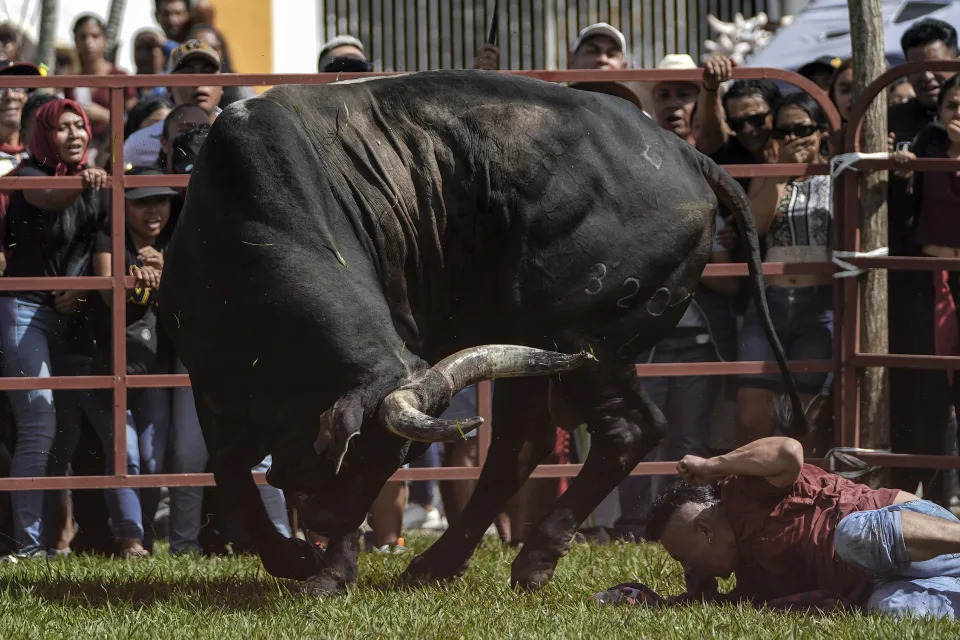

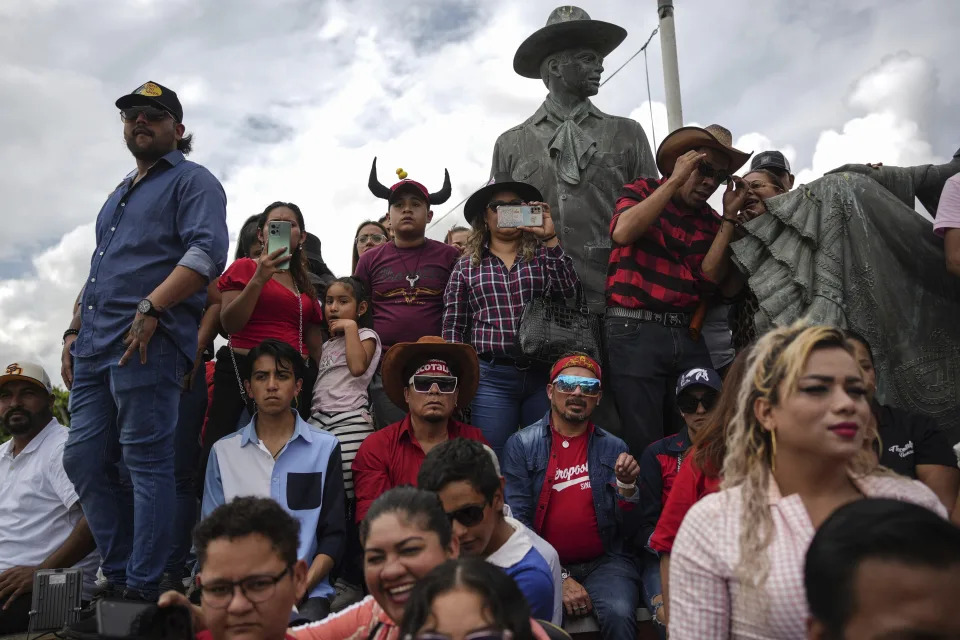
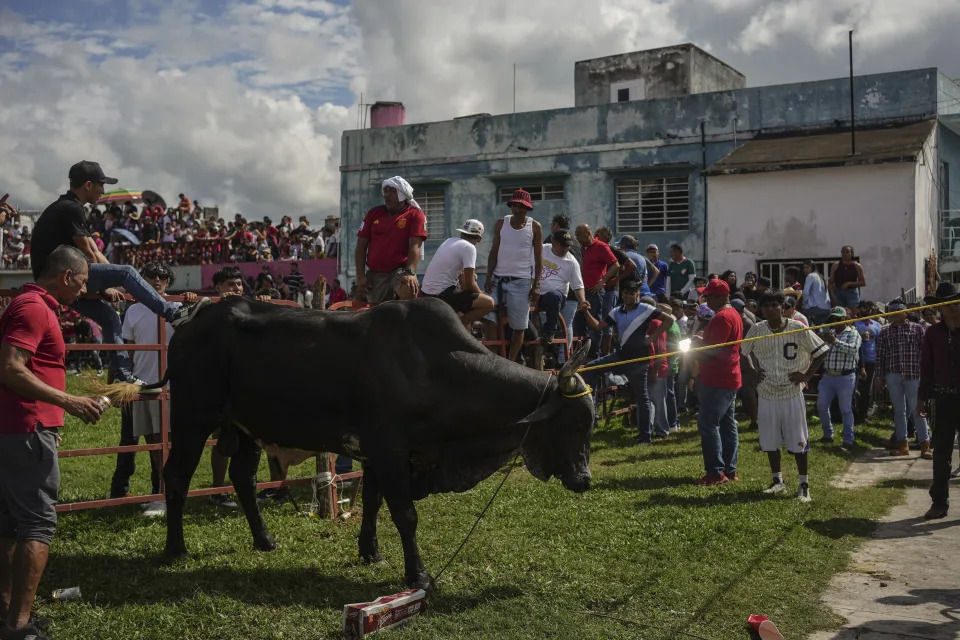
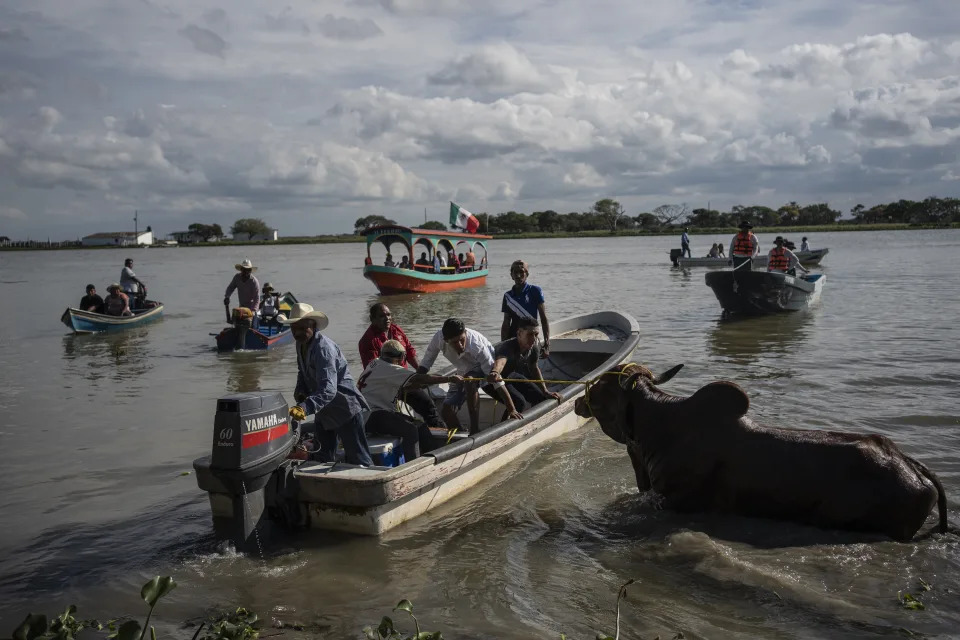
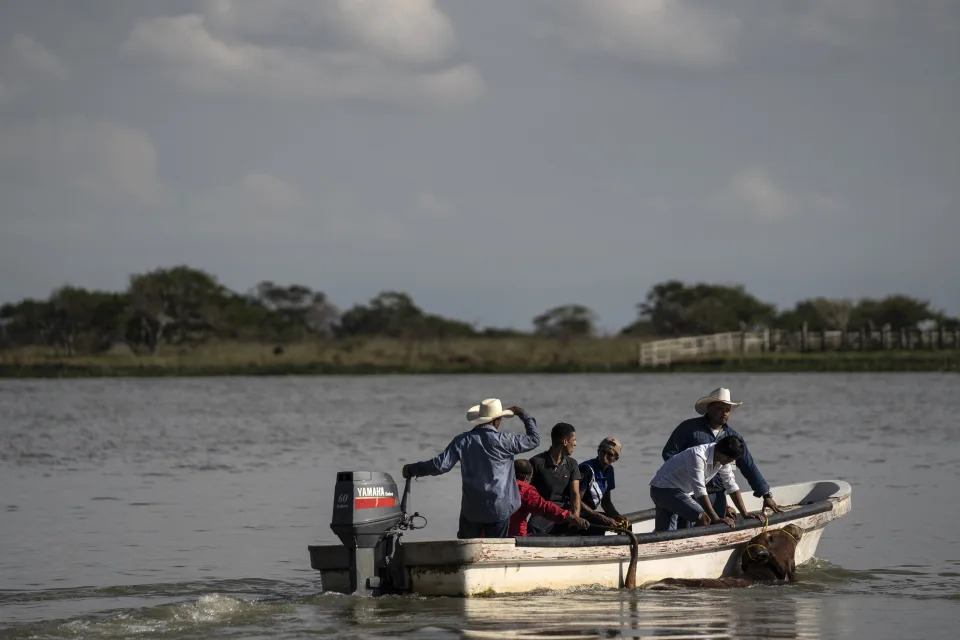
A reveler falls down after provoking a bull during a festival in honor of the Virgin of the Candelaria, in Tlacotalpan, Veracruz State, Mexico, Thursday, Feb. 1, 2024. For nearly a quarter century, the residents have taunted, slapped, chased and run from bulls as part of the religious festival. It is reminiscent, though at a much smaller scale, of the running of the bulls in northern Spain and has continued year after year despite laws banning the mistreatment of animals.
(AP Photo/Felix Marquez)
TLACOTALPAN, Mexico (AP) — For nearly a quarter century, the residents of this riverside town in southeastern Mexico have taunted, slapped, chased and run from bulls as part of a religious festival.
It is reminiscent, though at a much smaller scale, of the running of the bulls in northern Spain and has continued year after year despite laws banning the mistreatment of animals. This year, it takes place amid an ongoing legal battle over bullfights 300 miles (485 kilometers) to the west in Mexico City.
The festival tied to Candelaria -- Candlemas in English – runs from Jan. 28 to Feb. 9 among the colorfully painted houses of Tlacotalpan.
The bulls, donated by the town’s most well-off families, are just part of days of cultural and artistic events. On Thursday, six bulls crossed the Paploapan river into the town on a boat.
Beer drinking crowds of mostly young men clad in red shirts chased them through the streets, tugging on their ears and tails, to an improvised coral where some people tried to climb atop them.
Some of the tormentors suffered injuries, knocked down or gored and treated by paramedics.
In 2016, animal rights groups successfully pushed legislation in the state of Veracruz banning this sort of event. But Tlacotalpan has continued its festival undeterred in the name of tradition.
Alfredo Cervin, 20, described the adrenaline rush of running with the bulls with a profanity. He said the tradition should continue because it was something that distinguished the town.
Elva Arroyo Urbano, 48, said they were more careful with the animals now. “They’ve improved the way they bring them a little tied. They let them rest and they don’t mistreat them as much. There’s a little more discipline toward the bulls.”
Local authorities say the event has continued since the town was founded on the banks of the river in 1777. The annual threat of fines – there’s no record any have ever been imposed – have not stopped the town’s tradition.
TLACOTALPAN, Mexico (AP) — For nearly a quarter century, the residents of this riverside town in southeastern Mexico have taunted, slapped, chased and run from bulls as part of a religious festival.
It is reminiscent, though at a much smaller scale, of the running of the bulls in northern Spain and has continued year after year despite laws banning the mistreatment of animals. This year, it takes place amid an ongoing legal battle over bullfights 300 miles (485 kilometers) to the west in Mexico City.
The festival tied to Candelaria -- Candlemas in English – runs from Jan. 28 to Feb. 9 among the colorfully painted houses of Tlacotalpan.
The bulls, donated by the town’s most well-off families, are just part of days of cultural and artistic events. On Thursday, six bulls crossed the Paploapan river into the town on a boat.
Beer drinking crowds of mostly young men clad in red shirts chased them through the streets, tugging on their ears and tails, to an improvised coral where some people tried to climb atop them.
Some of the tormentors suffered injuries, knocked down or gored and treated by paramedics.
In 2016, animal rights groups successfully pushed legislation in the state of Veracruz banning this sort of event. But Tlacotalpan has continued its festival undeterred in the name of tradition.
Alfredo Cervin, 20, described the adrenaline rush of running with the bulls with a profanity. He said the tradition should continue because it was something that distinguished the town.
Elva Arroyo Urbano, 48, said they were more careful with the animals now. “They’ve improved the way they bring them a little tied. They let them rest and they don’t mistreat them as much. There’s a little more discipline toward the bulls.”
Local authorities say the event has continued since the town was founded on the banks of the river in 1777. The annual threat of fines – there’s no record any have ever been imposed – have not stopped the town’s tradition.
